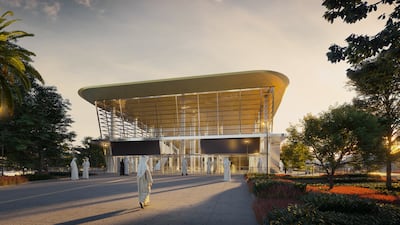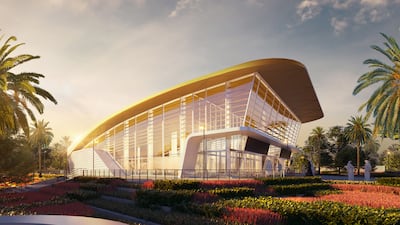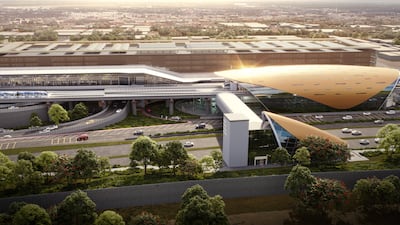The new Dubai Metro Blue Line will lead to a surge in local property prices, while contributing to a "substantial" reduction in road traffic, experts have said.
The Dh18 billion ($4.9 billion) 30km project, which will include 14 new stations, is expected to open in 2029.
New stations will be built in Mirdif, Al Warqa, International City 1 and 2, Dubai Silicon Oasis, Academic City, Ras Al Khor Industrial Area, Dubai Creek Harbour and Dubai Festival City.
The route is expected to serve 200,000 passengers a day by 2030, increasing to 320,000 a decade later.

Clearing roads
The Roads and Transport Authority estimates the project will help to reduce congestion on Dubai's roads by 20 per cent.
“We're looking at a substantial potential decrease in road traffic,” said Thomas Edelmann, founder of Road Safety UAE.
“This means fewer traffic accidents, as fewer cars on the road reduce the likelihood of collisions.“
He said the move would contribute to a "more relaxed driving environment" in the city.
“Drivers will no longer be competing against heavy traffic or racing against time and they are likely to be in better moods as a result," Mr Edelmann added.
“A more relaxed driving environment leads to safer driving behaviour and fewer drivers engaging in risky manoeuvres. This not only reduces the number of accidents, but also the severity of those that may occur, potentially leading to a decline in traffic-related deaths and injuries."
Research shows road users in the UAE appreciate the continued development of transport infrastructure, he said.
The Blue Line will also be a game-changer for Dubai residents on their daily commute.
“It offers me a practical alternative to driving, except for school runs,” said Diana Izhaiman, 35, an account manager at an IT company who lives in Dubailand.
But she said the development would come at a cost. “Our rent has jumped from Dh71,000 to Dh78,000 [$19,330 to $21,240] already and there's a looming concern about further hikes in rent prices in our area and others along the project," Ms Izhaiman said.
Property boom
The real estate market in the areas where the Blue Line is being developed will also experience growth. The RTA said the value of land and properties near the stations was expected to increase by up to 25 per cent.
“Usually the demand is higher in the areas near the Metro lines,” said Arta Gashi, a real estate expert with RE/MAX Valor.
The demand will come from different demographic groups, including families, students and Dubai residents who do not own cars.
“A big boost to the return on investment starting from 15 to 30 per cent is also expected," she said.
Ms Gashi said off-plan purchases were currently among the more favourable options, because people could make their payment plans according to prices before the expected surge.
Long-term views
The Blue Line could also lead to an increase in the populations of the areas it passes through, owing to the improvement in access and boost to businesses and facilities in those neighbourhoods.
"Interconnectivity and ease of access is so important in Dubai," said Leigh Wilmot, area manager for Treo Homes.
"If you look at the location of the new Blue Line, it is going to provide a lot of convenience for a lot of people and I do think that it will provide a small, perhaps 5 per cent, bump in property values in the areas that are mainly apartments.
"But the real effect is that the new line will also provide better access to facilities in that area. This will in turn allow for more amenities and businesses to open."
Mr Wilmot said he expected property prices to rise sharply once there was more on offer in the areas along the route.
"It's one of those yes and no situations. Will [the new Metro line] affect property prices directly? Not too much," he added. "Will it affect prices long term once the area has transformed? Definitely, yes."





